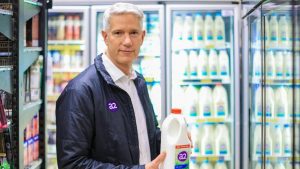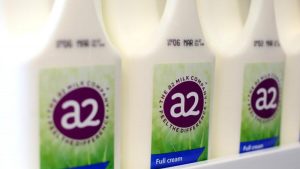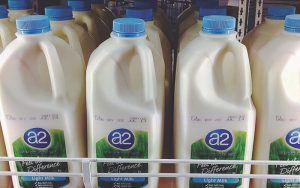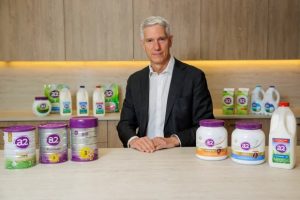
The US government has been dealing with a major crisis since February after Abbott Nutrition’s plant was closed following a contamination scare.
While multiple companies including smaller rival Bubs Australia was given special market access to help with the shortage, a2 Milk had missed out. In August, it received a letter from the US Food and Drug Administration (FDA) saying the regulator was deferring further review of its request to ship tins.
A2 Milk said on Thursday it now expects gross margins to be lower than average, and distribution costs to be higher due to potential air freight and rework costs in the near term, and incremental marketing and trade investment to enter the category.
Overnight, the FDA said a2 Milk will be able to import its a2 Platinum 0-6 months and 6 to 12-months ranges. Danone (Ireland) will also be able to import its Aptamil Stages 1 and 2 formulas.
“Both products will be sold at major US retail outlets,” the FDA said on its website.
The FDA added that the grant of special access follows a review of information provided “pertaining to the nutritional adequacy and safety, including microbial testing, labelling and additional information about facility production and inspection.”
The positive news sent the Kiwi company’s share price soaring on Thursday, gaining 29¢, or 5.5 per cent, to $5.56 each in afternoon trade on the ASX. It has been clawing back some ground since dipping just below $4 each in May.
The crisis continues in the US – while shipments of formula have landed, US media reports stores remain unevenly stocked, and officials in charge of the response blame hoarding, supply chain bottlenecks and manufacturers making fewer varieties.
A2 Milk chief executive David Bortolussi said on Thursday that the company has approval through to January 6, 2023 to import tins to the US.
The company can also supply Stage 3 toddler product in addition to Stages 1 and 2, which does not require enforcement discretion.
Mr Bortolussi added that the product to be supplied to the US has the same formulation as a2 Platinum but has different scoops, mixing instructions and labelling requirements to meet the FDA requirements.
This product is not currently available and will need to be manufactured as soon as possible, he said.
While the US represents a significant opportunity to develop the a2 Milk brand in the formula category over the long term, Mr Bortolussi said it is early days.
“In the near-term, and prior to confirming distribution plans, sales during FY23 are expected to be up to 1 million cans all within 2H23, assuming enforcement discretion remains in place throughout the period,” he said.
“Actual sales will ultimately depend on customer demand, consumer offtake, supply shortages and market conditions at the time.”
A2 Milk will provide an update on US distribution gains and sales outlook when it presents its first half results early next year.

























